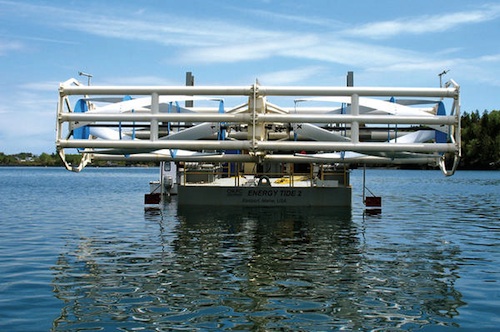Actually this does happen around the world, but very rarely is it ever successful. Here’s the essential challenge:
Their quest has been to create a machine that’s tough enough to withstand the constant pressure of surging water, yet sensitive enough to harness that power for electricity, all while being unobtrusive enough not to disturb marine life, commercial fishing, or recreational water sports.
China is partnering with Lockheed Martin, Eco Wave Power (Israel), Arcadis (The Netherlands), and Atlantis Resources (Singapore) to try and get this done. All are interesting, but perhaps Arcadis the most — they actually work with keeping water off the low-lands in The Netherlands.
Here’s how the whole system works:
The oceans are likely to become a focus of civilization as water resources and fossil fuel resources become more scarce, so becoming the first organization/nation that can successfully do something like this, at cost, and without tremendously disturbing tidal patterns or marine life, would be a huge deal. As noted, most of the current exemplars are pretty rough. There’s a thing called “SeaGen” off the coast of Ireland:
The U.S. has one off the waters of Eastport, Maine; it just went “on-line” last year. It powers only about 25 homes, but they’re apparently adding another one:
Here’s a little more on ocean/river currents becoming electricity (and the Maine project specifically):
The idea of a ‘tidal energy’ movement is somewhat en vogue right now: Nova Scotia is on board, as is a Canada-UK partnership, and some have estimated the entire industry is about $850 million right now. Here’s a little bit more on the evolution of the idea, and here’s the Rance (France) hydro power station, which has been a thing since the 1960s:
China is spending $160 million on their project; if they’re successful, they could be an even bigger global player come 2100 and beyond — although of course, some decisions in 2048 may re-shape the world before then.
